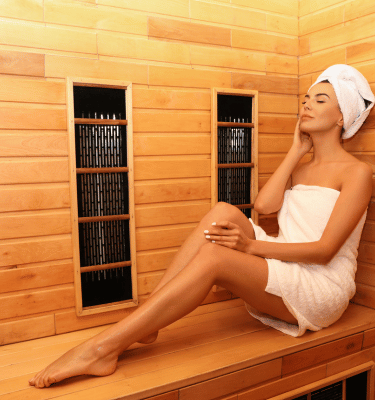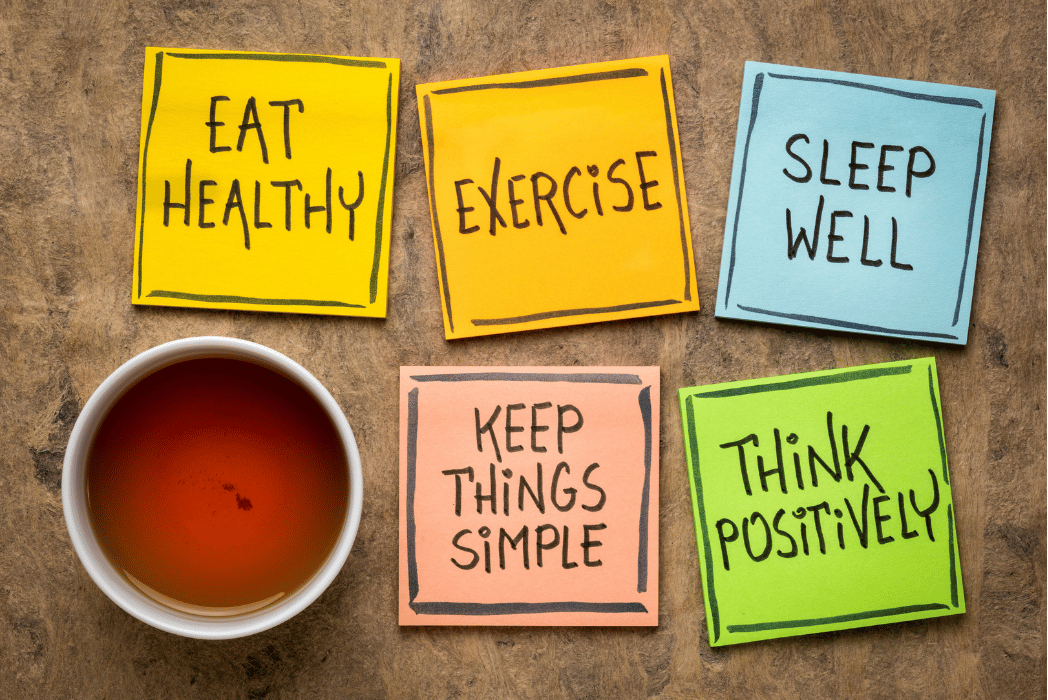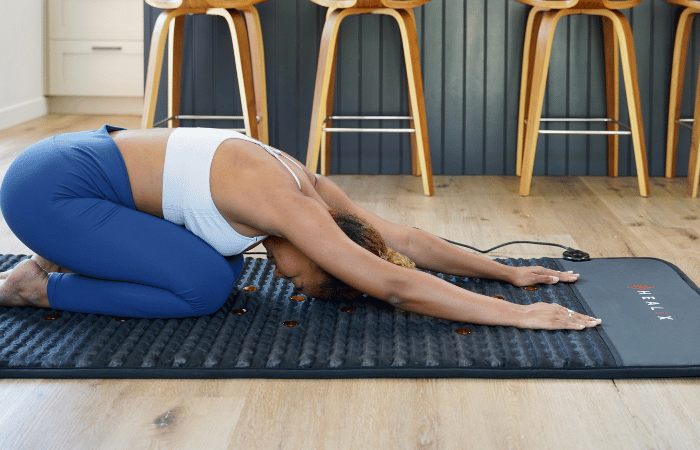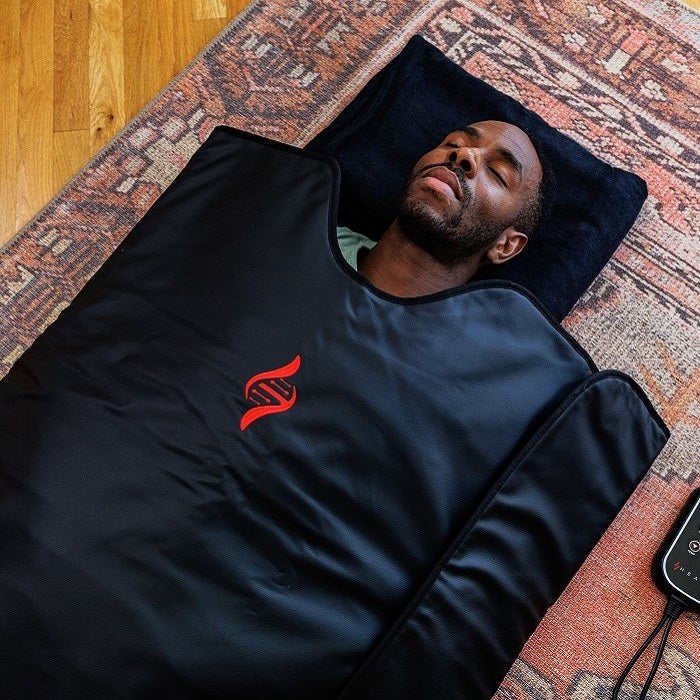Stop Knowing It, Start Doing It: Here's Why Sleep Needs To Be Your New Priority
Stop Knowing It, Start Doing It: Improve Sleep And Improve Your Odds Of Hitting Goals Faster

August 18th, 2021 | Infrared Tech
Sleep is one of the most fundamental aspects of good health, yet it's often overlooked. According to the CDC, about 35% of adults—roughly 1 in 3—regularly get less than the recommended seven hours per night, increasing their risk of obesity, diabetes, and heart disease¹. By recognizing the vital role sleep plays in recovery and long-term well-being, you can take steps to avoid becoming part of that statistic and start making it a true priority.
Research from Underwood and White highlights that the brain and central nervous system (CNS) play the largest role in optimal physical performance². Sure, being stronger, leaner, or more flexible is great—but if you don’t have the basic ability to control your body, you’re not going to accomplish much. That’s exactly what your CNS does.
The only way your CNS can recharge is with proper sleep. But that isn't the only thing proper sleep can do for your fitness goals.
Top 5 Recovery Benefits From Quality Sleep
Recharge Hormone Levels
Good, deep sleep does more than just recharge your energy and nervous system—it also allows your body to produce and regulate essential hormones. These include growth hormone, which plays a vital role in muscle repair, tissue regeneration, insulin sensitivity, and fat metabolism. Studies show that growth hormone secretion peaks during sleep, making rest essential for proper hormonal function³.
We dive into this in more detail in our article on using sauna to support a healthy endocrine system.
Repair Tissue
Most tissue growth and repair occur during sleep. When you exercise, you are actually causing microtrauma to your muscles. The faster you repair this unavoidable damage, the faster you will no longer experience muscle soreness.
Release Growth Hormone
Yes, we mentioned hormones already—but this one is worth highlighting again. Growth hormone is vital for muscle growth, tissue repair, and overall performance. Research shows that it's a natural secretion that peaks during sleep, making quality rest essential for maintaining optimal levels³. If you want to naturally maximize your growth hormone, prioritize your sleep.

Glucose Metabolism
When you’re training and eating well, your body depends on glucose as a primary energy source to power you through workouts. However, inadequate sleep can impair your body’s ability to metabolize glucose, leading to reduced physical and mental performance. Research by Underwood and White highlights how sleep deprivation disrupts glucose regulation, emphasizing the importance of rest for optimal energy use².
Kill Cravings
Studies show that failing to get enough sleep can cause you to crave salty, fatty foods². One of the hardest parts of body recomposition is fighting off cravings and remaining disciplined with your diet. Do yourself a favor—don’t make those cravings even stronger with poor sleep habits.
So How Much Do You Need?
Really, it's quality over quantity. Some top training athletes shoot for as much as 9 hours, but 6 hours of quality sleep will outdo 9 hours of poor sleep any day of the week. Ultimately, you want to aim for a minimum of 7 hours, with 9 being ideal. If you want to improve sleep quality, there are many things you can do.
Top 4 Ways To Improve Sleep Quality
No Screen Time 90 Minutes Prior to Bed
Blue light from screens decreases melatonin output and delays the transition from awake to asleep. If you stop using devices 90 minutes before bed, getting 7–9 hours of rest may become much more realistic.
Have A Schedule You Stick To
Not only is planning ahead helpful for ensuring enough sleep, but your body also responds well to consistency. Getting into a routine—both before bed and with your sleep/wake time—can significantly improve your sleep quality.
Avoid Caffeine Within 6 Hours of Bed
Notice we don’t say avoid it completely. We’re on board with 1–2 cups of coffee providing beneficial levels of caffeine. Studies have shown it to improve mental and physical performance and significantly boost bile production for liver health—but it must not be consumed late in the day.
Sleep Nutrition
Some foods can help improve the quality of sleep, including bananas, yogurt, milk, rice, grapefruit, kiwis, oats, turkey, cherries, walnuts, and almonds. No specific serving sizes or timing—just find ways to incorporate them into your general diet.
Perfect Sleep Cycles With Infrared
Some will tell you that an infrared session, matched with a cool shower, is relaxing enough to put the biggest insomniacs to rest. But there is some science behind why Infrared Sauna can help improve your quality of sleep, and in the process, boost the rate at which your body is recovering from physical activity.
You can explore this connection further in our article on 5 ways far infrared therapy enhances sleep cycles and promotes relaxation.
Increase Serotonin
This neurotransmitter is critical in maintaining a circadian cycle. Serotonin helps to properly time your wake cycle, as well as make your system more sensitive to signals from the body to shut down, start sleeping, and amp up recovery processes.
Learn more about its connection to infrared therapy in our blog Heat Therapy, Meditation & the Unconscious Mind.
Oxytocin Release
This happens in more than one way with infrared. The first can come from the relaxing state that is created during a sauna session—some refer to it as forced meditation. A second way to boost it is with a cool shower post-sauna. Although a little bit of a shock at first, the time after creates an oxytocin-fueled zen rush.
Discover additional calming practices in our guide to natural remedies for stress and anxiety.
Raise Melatonin Levels
Many are familiar with this natural chemical—some even supplement with it. But there’s nothing better than the real thing. Melatonin works in cooperation with serotonin, helping the body fall asleep, successfully hit all cycles of sleep, and signaling your wake-up upon recuperation.
For more practical tips, see how sleeping for recovery using infrared sauna blankets can supercharge your recovery.
References
1. “1 In 3 Adults Don't Get Enough Sleep.” Centers for Disease Control and Prevention, Centers for Disease Control and Prevention, 16 Feb. 2016, https://archive.cdc.gov/#/details?url=https://www.cdc.gov/media/releases/2016/p0215-enough-sleep.html
2. Underwood, John, and Keara White. Sleep and Recovery: An Applicable Approach to Lifestyle of Recovery and Rest for Athletes. www.wm.edu/offices/sportsmedicine/_documents/sleep-manual
3. Van Cauter E, Plat L. Physiology of growth hormone secretion during sleep. J Pediatr. 1996;128(5 Pt 2):S32-7. https://pubmed.ncbi.nlm.nih.gov/8627466/



